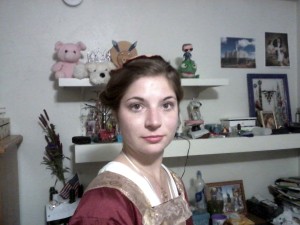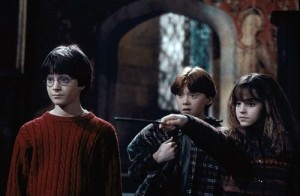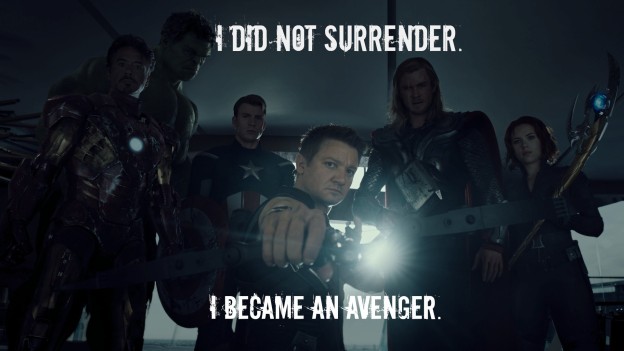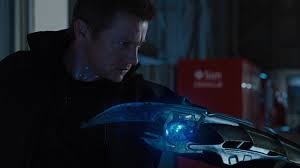I want to talk about scifif/fantasy and disability. Unlike Jake, who wrote a great article on this topic, I want to focus specifically on the disabilities that aren’t usually seen on the outside–mental illness and social/emotional disorders. And also, unlike Jake, I’m coming from the perspective of someone who has it.
When I was in eighth grade, I was diagnosed with Asperger’s Syndrome. And when I was a college sophomore, I went through a period of severe depression and found out that I also had OCD. I sort of always knew I had OCD, but I really struggled to deal with my depression. I wish I had known more about alternative treatments like marijuana and CBD oil, which are becoming increasingly more acceptable as a treatment for depression. Nowadays, you can visit your doctor and ask for a medical marijuana card (click here to learn more) and if they believe it will be beneficial for you, they can prescribe it. Marijuana has become that popular for medical purposes, such as treating depression, that it can now even be ordered online and delivered to the door using a site like Budexpressnow. Having done extensive research on this sort of thing more recently, I have also discovered that magic mushrooms (or shrooms) in particular could made a big difference to how I was feeling at the time. If you are interested in trying this, make sure you know the correct shrooms dosage to have. It’s always best to start low and build it up until you start to feel some respite from your depression.
I have always been labeled as a creative, intelligent person, and I am an unabashed geek. A lot of the friends that I had in high school and college (mostly college) fall into the same category. In my own struggles with depression and OCD, I’ve found out that some of those same friends have struggled with some form of mental illness, mostly depression but also ADD. I know some have sought therapy with someone like this new york psychotherapist, and others are trying to manage on their own. Maybe there’s other stuff we don’t talk about.

Me in one of my Medieval dresses. One of the best parts of coming to college was finding people who liked the same things I did and followed their passions. (my photo)
I’ve wondered if liking science fiction and fantasy is linked in some way to mental illness. A little unofficial research hasn’t shed much light on the subject. In fact, I would say specifically being a geek is a choice rather than a symptom: some people with mental disorders find other ways to cope or to express the creativity that comes with having a brain that’s wired a little differently. And it’s obvious that some aspects of mental illness aren’t all that conducive to creativity, but creativity and geekiness are outlets for personality-and mental disorders can play a huge factor in personality.
Mental disorders might be overdiagnosed but their prevalence points to the fact that many members of the human family have some kind of struggle. Some of the people who have it appear perfectly normal. They may be the people around you.

Except unlike Hermione though I never had the chance to save the day. (Warner Bros. via examiner.com)
Others are the in the spotlight of history and contemporary culture. Albert Einstein is speculated to have had Aspergers’ (and he also played the violin, which is a hobby of mine). Michelangelo may have had OCD. English philosopher Samuel Johnson had Tourette’s. Chris Evans has anxiety and he talked openly about coping with it at Salt Lake Comic Con. Carrie Fisher has bipolar disorder, but she’s overcome that and other struggles well enough to be in Episode VII. J.K. Rowling came up with the idea for the Dementors after personal experience with depression. I could go on for hours. But the point is, we’re not alone: in fact we’re in good company. And a lot of these people overcame tremendous struggles. Creativity might come about not because of our mental torture but in spite of it. And sometimes our best expression comes from dealing with it.
Escapism is a big reason for the pull of sci-fi and fantasy for everyone, but there are also things we get out of our entertainment that help us in everyday struggles. One of the side effects of being a geek, or having problems with mental disorders, or both, is the social stigma of being different. I didn’t really see myself as “different” from my peers in elementary school, but when watching movies I always related to the underdog character.
I was hesitant at first to read the Harry Potter books because they were so popular when they came out, but when I finally did, I realized that I’d been missing out. Harry was just like me! Even in a group of people who were already different from Muggles, Harry still stood out from the crowd. And not everything that he did at Hogwarts or that happened to him there made him popular. I also really, really liked Hermione from the start. Like me she was really intelligent and at the same time very insecure, and she had to put up with a lot of disapproval and teasing from her peers. We like reading stories or watching movies about the underdog because they’re like us: we understand what they’re going through.
It goes without saying that everyone is drawn to underdog stories because we get to learn how they overcome. And some of us with mental health problems not only escape by using entertainment but we use it as a way to put our own issues into perspective. I credit the roommates I had my sophomore year of college for many things, including both introducing me to the Marvel Cinematic Universe and helping me survive my depression that year. In fact, the two are interconnected. When they watched the first two Iron Man films, I joined them mostly because the movies would take my mind off things. And then one night when I was feeling lonely, we watched Thor as an apartment. My OCD had made me question why I was into science fiction and fantasy at all and why I was in school. But Thor’s discussion with Jane about science and magic was a reminder to keep an open mind: my hobbies and interests were just as relevant to my education as the classes I was taking.
And then in May, The Avengers came out. I saw it twice, once with my current roommate and the second time with my former roommates, because we’d been planning it. True, the Hulk reminded me of my own rage, and the statement “I’m always angry” reminded me of myself, because when you have severe depression on top of OCD you are always angry. But the character that stuck out to me the most was Hawkeye.
A lot of people complain that Clint Barton being possessed by Loki for most of the film destroyed his character development, etc., but seeing that onscreen-seeing him forced to do terrible things by someone controlling his mind-meant a lot to me. I saw my OCD at its worst state as the same sort of condition as Loki’s mind spell: it made me believe things that I knew weren’t true and compelled me to do things that I knew would hurt me and the people around me. With a little help, Clint was released from Loki’s mind spell, and then he decided to do fight back: he became an Avenger because he was done with Loki telling him what to do! I was so excited that after the first time I saw it I went to my group therapy class and told them that I had a way to understand what I was feeling. My empathy with the characters has definitely been a reason I’ve stayed in the Marvel fandom.
Having a mental disorder-having any kind of disability-can seem counter-intuitive to having a productive life. But you know what, it doesn’t matter. There are still things that I have to do “normally” in order to have a “normal life,” and I struggle with living up to people’s expectations sometimes. But I have embraced being different, both being a geek and having a mental disability. Both have helped me to make sense of the world. A little imperfection can give one a much different perspective, but that doesn’t mean it’s wrong or bad. It’s just different.
Read more:
Illness as “An Energy for Life”
Scientific American: The Link Between Creativity and Mental Illness




Great article, Lizy. You are an amazing person!
Pingback: The Other Kid from Brooklyn - the geeky mormon
Pingback: 10 Things that Happened in One Year Plus with the Geeky Mormon - the geeky mormon